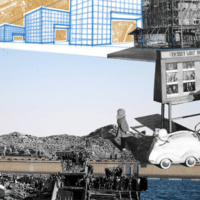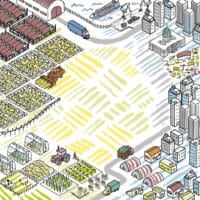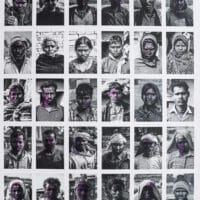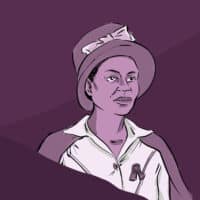-
Dossier no. 87: The Bandung Spirit
In 1955, the leaders of former Global South colonies met in Bandung, Indonesia, brought together by a common spirit for national liberation and cooperation. Seventy years later, is there any trace of it left?
-
Dossier no. 86: Imperialist War and Feminist Resistance in the Global South
In the Global South, women creatively resist the impact of unilateral coercive measures, a form of hyper-imperialist hybrid warfare that reinforces patriarchy and other forms of social discrimination.
-
Dossier no. 85: The joy of reading
Reading and popular literacy programmes have played an important role in revolutionary processes, from the Mexican, Chinese, and Russian revolutions in the early twentieth century to today.
-
Dossier no. 84: Towards a New Development Theory for the Global South
As progressive governments take office in the Global South, now more than ever there is a burning need for a new development theory that can fulfill the Promethean aspirations of the darker nations.
-
Dossier no. 82: How Neoliberalism Has Wielded ‘Corruption’ to Privatise Life in Africa
In Africa, the leading forces of capitalism have ruthlessly wielded a neoliberal conception of corruption to undermine states’ sovereignty and open the continent to plunder at the hands of Western multinational corporations.
-
Dossier no. 81: The Twentieth Century, the Global South, and China’s historical position
Chinese scholar Wang Hui looks back at the twentieth century, which was born out of the multiple revolutions in the peripheral areas of the world, including China.
-
Dossier No. 76: The New Cold War is sending tremors through Northeast Asia
This dossier looks at how the U.S.-led New Cold War against China is destabilizing Northeast Asia, focusing on the Korean Peninsula, Taiwan Strait, and Japan.
-
Dossier No. 75: The Political Organisation of Brazil’s Landless Workers’ Movement (MST)
This dossier focuses on the MST’s tactics and forms of organisation and why it is the only peasant social movement in Brazil’s history that has managed to survive for over a decade in the face of the political, economic, and military power of Brazil’s large landowners.
-
Dossier no. 74: Interrupted emancipation: Women and work in East Germany
This dossier looks at the history and unfinished work of women’s liberation in the German Democratic Republic, such as its achievements, legacy, and the challenges it faced.
-
Dossier no. 73: How the People’s Science Movement is bringing joy and equality to education in Karnataka, India
The People’s Science Movement in India has few parallels in the world in concept, scale, and scope.
-
Dossier no. 72: The churning of the global order
In January 2023, a reporter from Yomiuri Shimbun asked the press secretary of Japan’s foreign ministry, Hikariko Ono, for a definition of the term ‘Global South’.
-
Hyper-imperialism: A dangerous decadent new stage
It has been a scant 30 years since the ‘end of history’ was declared by bourgeois ideologists in pantomimes of wish-fulfillment for sensing the inviolability of United States imperialism. For peoples’ struggles and movements feeling the boot of imperialism on their necks, no such end was in sight.
-
Dossier no. 71: Culture as a weapon of struggle: The Medu Art Ensemble and Southern African Liberation
The story of Medu is not just a South or southern African story, but an international one. No single liberation struggle can exist without the circulation and exchange of ideas, strategies, material resources, political solidarity, and culture across the globe.
-
Dossier no. 68: The coup against the Third World: Chile, 1973
The relationship between Chile, the curtailment of its socialist reforms, and the ongoing processes in other countries in the region and in the Global South more generally have been systematically erased in Chile, from official historiography and media narratives alike.
-
Dossier no. 67: Dependency and Super-exploitation: The Relationship between Foreign Capital and Social Struggles in Latin America
In the different countries of the world, capitalism is shaped and consolidated not only by the general logic of this mode of production, but also by the social, historical, and cultural conditions of each country. The way each country and region understand the forms of accumulation and expansion of capitalism is fundamental to the class struggle.
-
Dossier no. 66: The world needs a new socialist development theory
Across the world, evidence of human misery is increasingly easy to find. The data collected and reported by international agencies is stunning. Billions of people around the planet lack access to adequate education, healthcare, food, and shelter, as well as information and culture.
-
Dossier no. 65: Whose Land Is It and What Is It For? An Unfinished Debate About Land Access in Argentina
How is it that a country like Argentina, with its vast rural territory, longstanding agricultural tradition, and capacity to produce food for hundreds of millions of people, is plagued by hunger and malnourishment?
-
Dossier no. 64: The Condition of the Indian Working Class
In this latest dossier, the Tricontinental offers a broad analysis of the living and working conditions of India’s large and diverse working class.
-
Dossier no. 63: Life or debt: The stranglehold of neocolonialism and Africa’s search for alternatives
Before the pandemic was announced by the World Health Organisation in March 2020, the poorer nations of the world already struggled with seriously high—and unpayable—levels of debt.
-
Josie Mpama
The twentieth century was marked by national liberation struggles that emerged in Africa and Asia, as well as in Latin America, where neocolonial structures had subordinated the formally independent countries. The achievements of the Russian Revolution in 1917 inspired the peasantry and the working class across the Global South. The fight for equality and liberation […]

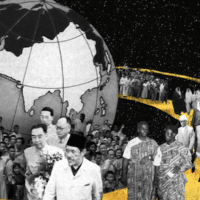


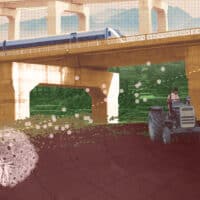

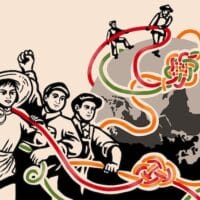
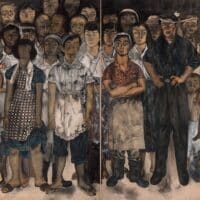
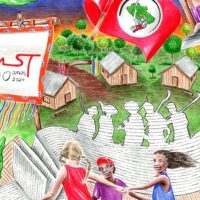

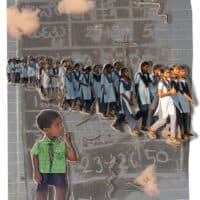

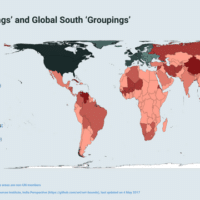
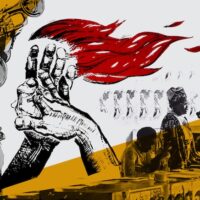
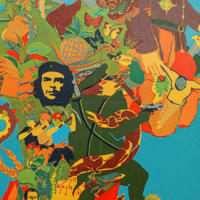
![Marini, Ruy Mauro. Ruy Mauro Marini: “Dialética da dependência” e outros escritos [Ruy Mauro Marini: ‘The Dialectics of Dependency’ and Other Writings]. Organised by Roberta Traspadini and João Pedro Stedile. São Paulo: Expressão Popular, 2005.](https://mronline.org/wp-content/uploads/2023/08/Screenshot-2023-08-08-at-75917-AM-200x200.png)
